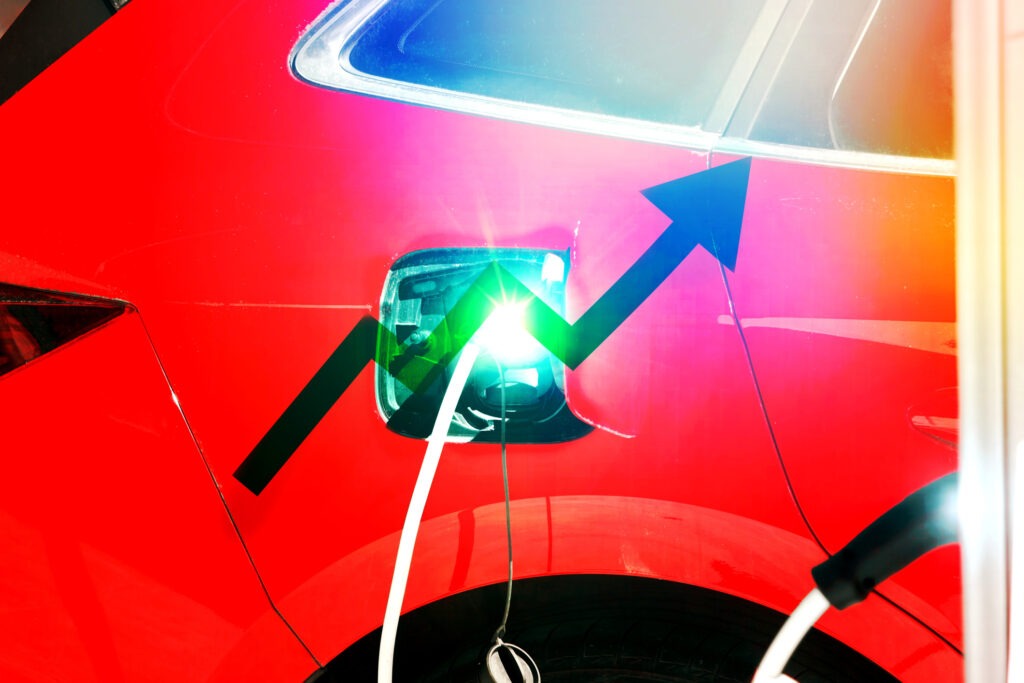Global EV market grows as Chinese brands pick up pace
17 January 2025

Sales of new electric vehicles (EVs) increased year on year in November. Several Chinese brands saw triple-digit growth in the month as they ramped up deliveries. Autovista24 editor Tom Geggus explores the EV figures.
Combining battery-electric vehicle (BEV) and plug-in hybrid (PHEV) figures, the global EV market continued to grow in November. The 1.86 million deliveries worldwide represented a year-on-year increase of 33.4%. In total, just under 15.35 million EVs were registered between January and November, up by 26.3% compared with the same point 12 months prior.
While PHEVs enjoyed market-leading growth, BEVs represented a larger proportion of delivery volume. In November 2024, all-electric cars made up 63.6% of the global EV market. This figure dropped by 5.5 percentage points (pp) compared with a year prior. Meanwhile, PHEVs accounted for 36.4% of the market, a significant increase from 30.9%.
This divide was less pronounced between January and November. All-electric models made up 62.9% of global EV registrations, down by 6.6pp from a year ago. Meanwhile, PHEVs made up 37.1% of the market, up from 30.5%.
BYD increases EV share
Ranking brands by the number of EVs delivered across the world reveals a sizeable Chinese presence. In November 2024, seven of the top 10 brands all hailed from the country. The remaining three came from the US or Europe.
BYD was out in front, capturing 22.8% of the global EV market in November 2024, up 2.1pp year on year. The brand registered 425,907 units in the month, surging 47.5% compared to 12 months ago. This growth was largely thanks to a surge in PHEV sales. In November, the powertrain made up 55.7% of BYD’s EV deliveries.
This percentage could increase further, influenced by numerous factors. Firstly, the powertrain is becoming more advanced, with newer generations gaining greater all-electric ranges. This allows consumers to benefit from the best of both electric and internal-combustion engine (ICE) technology.
Secondly, some buyers are still cautious of BEVs. ICE-powered models can be thought of as more tried and tested, particularly in terms of refuelling. Meanwhile, EV charging Infrastructure is still underdeveloped in many regions.
Purchase incentives have also been withdrawn in some countries during a period of economic difficulty. This has turned more buyers to consider a bridging technology, like PHEVs.
Thirdly, global politics is becoming more protectionist, with more countries placing tariffs on imported goods. Last year, the EU imposed additional punitive tariffs on imports of BEVs made in China.
As a response, brands may focus on selling PHEVs in the region to get around these duties. Furthermore, Donald Trump’s return to the White House could mean even more tariffs in the near future.
Tesla’s turn down
This uptake of PHEVs has left BEV-only brands like Tesla in a more difficult position. In second, the carmaker registered 172,838 units in November, down by 0.9% year on year. This gave it a 9.3% share, down from the 12.5% market hold recorded 12 months prior.
Meanwhile, Wuling delivered 92,522 units in November 2024, up by 66.5% year on year. The brand’s market share increased by 1pp to 5%, putting it in third. Geely took fourth place after a surge in EV sales. The brand registered 75,278 units in the month, equating to a considerable year-on-year increase of 154.9%. It claimed a market share of 4%, up 1.9pp.
Li Auto took fifth place. However, its market share fell to 2.7% from 2.9% in November 2023. This was the result of increased competition, as the manufacturer increased deliveries by 23.2% to 50,567 units.
European brands EV slump
The first European brand on the table was BMW in sixth, registering 47,529 EVs. This represented a drop of 7.4% on November 2023 as it claimed 2.5% of the market, down 1.2pp. Volkswagen (VW) followed not far behind in seventh, with the same market share. However, this was a drop of only 0.9pp year on year, as its deliveries fell by 2.9% to 46,085 units.
Leapmotor finished the month in eighth place, registering 39,730 EVs, up by 118.4% compared to 12 months ago. This put the carmaker’s market share up to 2.1% from 1.3% at the same time in 2023.
The brands in ninth and 10th were close behind. With 39,188 deliveries, Aion recorded a volume increase of 3.9%, however, its share fell by 0.6pp to 2.1%. Meanwhile, Chery’s share climbed by 1pp to 2.1%. This was off the back of 147.4% year-on-year registrations growth as the brand moved 39,030 units.
Insurmountable EV lead
BYD held an insurmountable lead in the EV market between January and November. The brand delivered 3.49 million units, up 36.6% year on year. This allowed it to take a greater share of the market, up 1.8pp to 22.8%.
In second, Tesla saw its share slip by 3pp to 10.3%. Compared with the first 11 months of 2023, Its registrations fell by 1.8% to 1.58 million units. In third, Wuling recorded 582,823 EV deliveries, up 43.6%. This moved its market share up by 0.5pp to 3.8%.
BMW took fourth place with 481,080 EV deliveries, up 9.3%. However, it faced stiff competition as its market share fell to 3.1% from 3.6% at the same point in 2023. Li Auto achieved registrations growth of 43.1% to 465,994 units. Its market share reached 3%, up 0.3pp.
VW finished in sixth as its deliveries fell by 5.1% to 408,681 units. Its market share dropped too, reaching 2.7% from 3.5% at the same point in 2023. Aito came seventh with 356,637 registrations, equating to a huge increase of 379%. This meant it made up 2.3% of the EV market, up by 1.7pp.
Mercedes-Benz, Aion and Volvo appear locked in a close race. The German brand came eighth with 340,728 EVs delivered, up 1.5%. Its share hit 2.2%, down 0.6pp. Aion claimed the same portion of the market, but this equated to a decrease of 1.4pp. However, its registrations did drop by 23.5% to 336,019 units. Volvo finished 10th after its deliveries climbed by 33.2% to 319,823 units. This put its market share up by 0.1pp to 2.1%.




